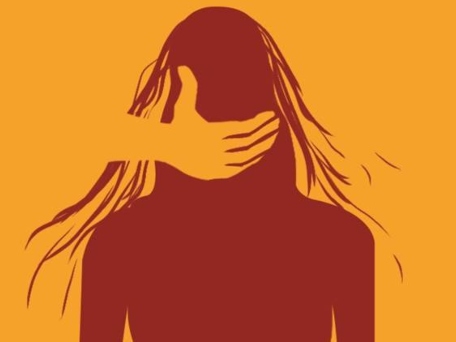
It has been more than a year since the 19 year old dalit girl was gangraped and brutalised in Hathras, Uttar Pradesh. On September 14 last year the victim’s mother found her lying on the ground in a brutally assaulted state, with her tongue cut off. What followed after the incident was equally shocking. Two weeks later as the girl succumbed to her injuries in a Delhi hospital, the UP police carried her body back to her village and forcibly cremated her without the consent of her family. Despite clear statements by the victim about sexual assault the police and the government authorities kept denying the charges of rape.
One year after the incident, the victim’s family struggles for justice. As the trial continues in the local court, the family remains isolated and confined to their house and is subjected to slurs by the upper caste residents of the village. The four accused in the case were charged with gang-rape and murder by the CBI in December last year and the trial began in January.
Most upper caste families in the village not only completely deny that the victim was raped and also believe that this is a case of “honour killing.” The family of the victim and their lawyer have to continuously face harassment and intimidation even in the court premises which marrs the efficacy of the trial. The trajectory of the hathras case accurately reveals several realities of the cases of caste based sexual violence in India — inadequate and sluggish judiciary, lack of sensitivity of police in sexual violence cases, negligence and apathy of the police and administration, further harrasment and ostracization of the victim’s family.
In a report, news website The Print states that according to their investigations Hathras is not an exception and there have been at least four other cases in Uttar Pradesh, Bihar and Delhi where the rape victim’s body has been forcibly cremated by the police. The report also quotes an activist stating the forcible cremation of the body by the police is almost becoming an unsaid norm.
Amid several horrifying reports of rape cases in India over the last month the National Crime Records Beaureu released its report on crimes in India for the year 2020. According to the report, crimes against Scheduled Castes (SCs) and Scheduled Tribes (STs) show an increase of 9.4 per cent and 9.3 per cent respectively in 2020 compared to the previous year. In the case of STs, 13.7% of the total cases under crimes against STs (8272) were of rape and 10.7% were for assault on women with intent to outrage her modesty.
The NCRB data also showed a significant decrease in the number of cases for violence against women. A total of 3,71,503 cases of crime against women were registered during 2020,whereas for the year the total number of the cases under the category were 4,05,326. The figures indicate a decline 8.3% in the numer of cases of violence against women in 2020 in comparison 2019.
The report associates the dip in the number of cases of crimes against women to Covid 19 lockdown. It states, “The country remained under complete lockdown from 25th March, 2020 and 31st May, 2020 due to COVID-19 Pandemic (First Wave), during which time movement in public space was very limited. The cases registered under Crimes against Women, Children and Senior Citizens, Theft, Burglary, Robbery and Dacoity have therefore declined.”
Experts have expressed doubts about taking the data at its face value and have raised concerns about the increased cases of domestic violence during the lockdown including the possibility of lack of access to police. Even as the NCRB data shows a dip in the number of cases of crimes against women, it also shows a spurt in domestic violence cases. The report notes that the majority of cases under the Indian Penal Code were registered under ‘Cruelty by Husband or His Relatives’ at 30.0%.
The data from National Commission of Women (NCW) shows a huge increase in the number of domestic violence cases in India. between March 25 and May 31, the NCW received 1,477 complaints of domestic violence from women. This short span of 68 days recorded more complaints than those received between March and May in the previous ten years. This mismatch, argues Priyanka Ishwari, could point to a larger problem of underreporting of the domestic violence cases to police and their accessibility due to the lockdown.
The Hathras case adequately highlights the insensitivity of the police, administration and judicial system in cases of violence against women, particulalry if the violence is of sexual nature and if the victim belongs to a marginalised community. The case also highlights that violence against women is not simply about the nature of the crime but also about the social identity of the victim and the inefficacy of the system to provide justice.




